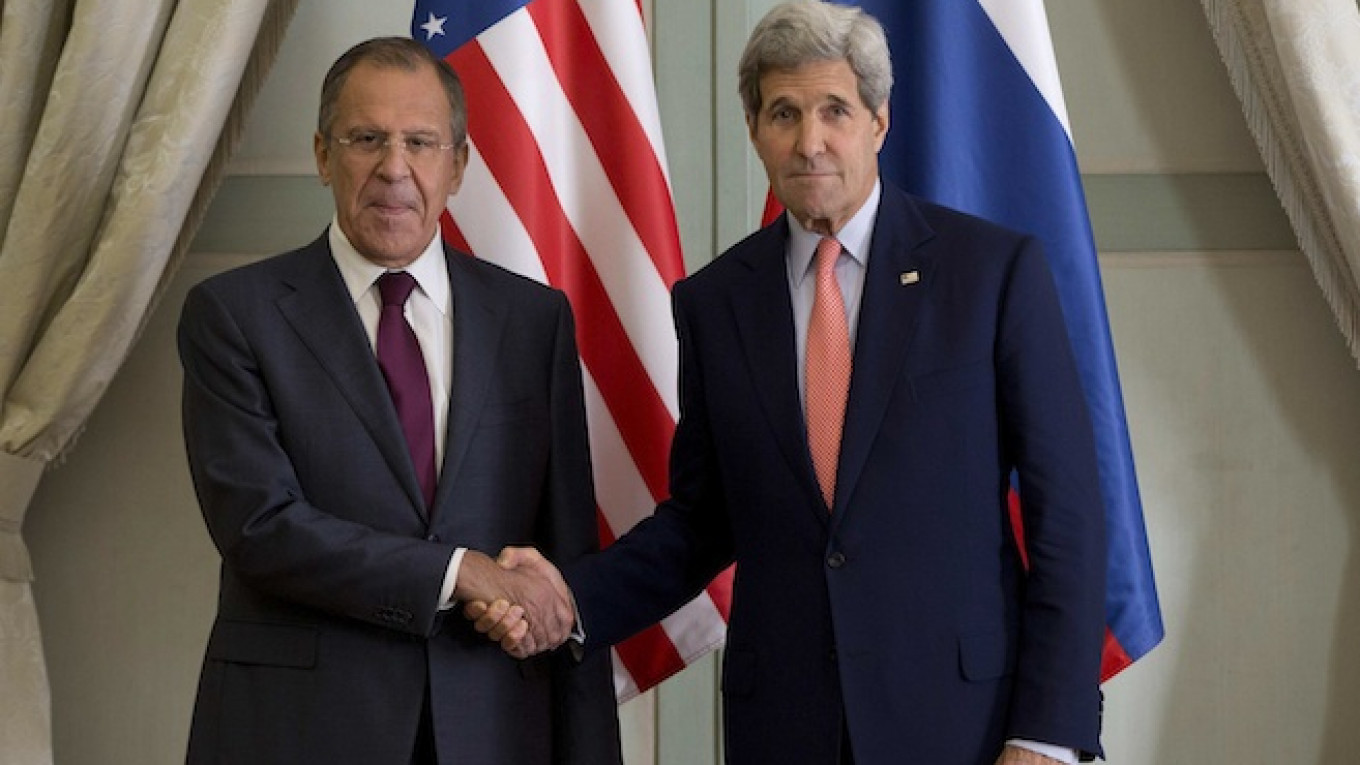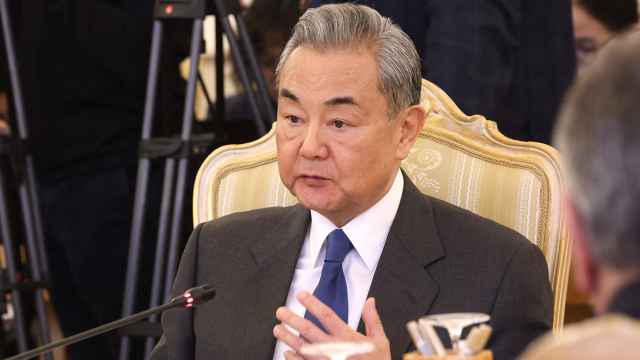U.S. Secretary of State John Kerry and Russian Foreign Minister Sergei Lavrov have agreed to increase intelligence sharing between Moscow and Washington on Islamic State militants, focusing on a common enemy even as deep divisions remained over the crisis in Ukraine.
Speaking Tuesday in Paris after talks with his Russian counterpart, Kerry said the two world powers, whose relations have hit a post-Cold War low over Russia's role in Ukraine, had a "major responsibility" to find ways to work together on global issues, despite their stark differences in a number of areas.
While leaving little doubt that mutual distrust remains, Kerry stressed the search for common ground between the two countries against Islamic State, which has seized large swaths of Iraq and Syria in a brutal campaign.
"We both recognize the need to destroy and ultimately defeat ISIL, to degrade their efforts and ultimately to defeat them," Kerry told a news conference, using an alternative name for the group also known as IS.
"No decent country by any definition could support the horrors that are perpetrated by ISIL, and no civilized country should shirk its responsibility to stand up and be part of the effort to stamp out this disease."
Kerry said the U.S. and Russia had agreed to "intensify intelligence cooperation with respect to IS and other counterterrorism challenges of the region." He said Moscow would also explore whether it could do more to help arm and train Iraq's embattled military.
However, Kerry stopped short of saying that Moscow would join the U.S.-led international coalition against Islamic State. In recent years, as U.S.-Russian relations have deteriorated, intelligence cooperation has suffered.
Moscow has made clear it suspects Washington's ulterior motive is the removal of its ally, Syrian President Bashar Assad, and has insisted that U.S. air strikes there need Syrian government and United Nations approval. Washington rejects this.
Differences on Ukraine
Lavrov has recently called for a new "reset" in relations between Washington and Moscow, referring to an initiative U.S. President Barack Obama pursued early in his first term but which has since faded.
Signaling just how difficult it could be to make such a positive shift, Kerry called on Russia to do more to help fully implement a cease-fire in Ukraine between the Western-backed government and pro-Russian separatists rebels fighting in the eastern part of the country.
The truce has come under strain at times since it took effect last month
He said "foreign forces and weapons" must be withdrawn and Russia must complete the pullback of its troops, including heavy equipment, from its border with Ukraine.
Kerry also warned that the U.S. and the international community would not recognize any referendum held in separatist-held areas of Ukraine, and acknowledged this was a "point of disagreement" in his more than three hours of talks with Lavrov.
Kiev and its Western backers accuse Moscow of backing a pro-Russian separatist revolt in eastern Ukraine by providing troops and arms. Russia denies the charges but says it has a right to defend the interests of the region's Russian-speaking majority.
The West has introduced a wide range of sanctions against Russian banks, energy companies and individuals for Moscow's role in the Ukrainian conflict, which has claimed the lives of more than 3,000 people.
In the fight against Islamic State, the U.S. and Russia have common ground in their concern about fighters from their countries joining the group's insurgency and then returning to carry out attacks at home.
" There may be as many as 500 or more from Russia," Kerry said.
These include fighters from Russia's predominantly Muslim North Caucasus, a region where militants wage daily violence to establish an Islamic state.
A Message from The Moscow Times:
Dear readers,
We are facing unprecedented challenges. Russia's Prosecutor General's Office has designated The Moscow Times as an "undesirable" organization, criminalizing our work and putting our staff at risk of prosecution. This follows our earlier unjust labeling as a "foreign agent."
These actions are direct attempts to silence independent journalism in Russia. The authorities claim our work "discredits the decisions of the Russian leadership." We see things differently: we strive to provide accurate, unbiased reporting on Russia.
We, the journalists of The Moscow Times, refuse to be silenced. But to continue our work, we need your help.
Your support, no matter how small, makes a world of difference. If you can, please support us monthly starting from just $2. It's quick to set up, and every contribution makes a significant impact.
By supporting The Moscow Times, you're defending open, independent journalism in the face of repression. Thank you for standing with us.
Remind me later.






